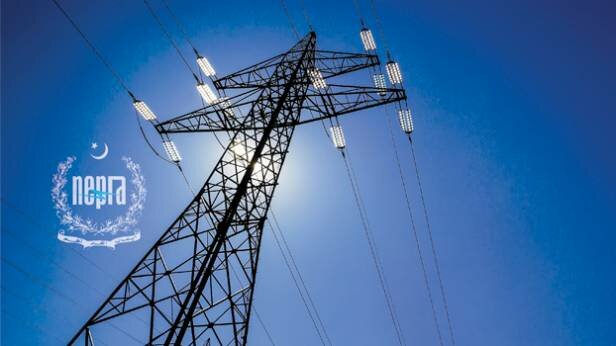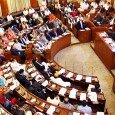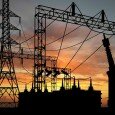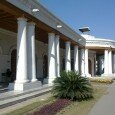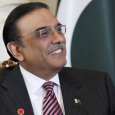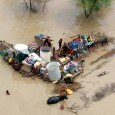By Ahmed Ahmadani –
The National Electric Power Regulatory Authority (NEPRA) was established with a mission to develop and pursue a regulatory framework which ensures the provision of safe, reliable, efficient and affordable electric power to the electricity consumers of Pakistan, besides striving to facilitate the transition from a protected monopoly service structure to a competitive environment where several power sector entities function in a market driven environment.
NEPRA was also chartered to maintain a balance between the interests of the consumers and service providers in unison with the broad economic and social policy objectives of the Government of Pakistan. Besides introducing transparent and judicious economic regulation, based on sound commercial principals, to the electric power sector of Pakistan, it was created to reflect the country’s resolve to enter the new era as a nation committed to free enterprise and to meet its social objectives with the aim of improving the quality of life for its people and to offer them opportunities for growth and development.
However, the performance of the regulator is very much poor as the entire authority has fallen hostage to one individual, a one Khawja Muhammad Naeem (Member Punjab). The authority to some extent has become a defunct body as during the last two years it could not find a chairman for itself, nor could it find a Member Khyber Pukhtunkhwa (KP).
Similarly, it has been found protecting the interest of power companies of the influentials while setting aside the interests of the hapless power consumers despite the fact that the inflation-hit masses are bearing a heavy brunt of skyrocketing power tariffs, not to mention unannounced load-shedding for hours at a time. Decorum and service delivery of this quasi-judicial body has been compromised, once again at the cost of the poor common citizens of the country.
Officials at the Water & Power Ministry painted a bleak picture of the authority, raising serious questions over poor performance and incompetence by saying that, “Decisions of the authority are worsening the life of power consumers who are already burdened with tariffs.”
They said from 2009 till mid 2011, NEPRA had illegally and unjustifiably approved delayed payments worth Rs80 billion for the Independent Power Producers (IPPs) on account of monthly price adjustments and had committed serious violation of Section 31(4) of the NEPRA act (the Regulation of Generation, Transmission and Distribution of Electric Power Act 1997) under which the authority is to review and revise the approved tariff on account of any variations in the fuel charges on a monthly basis.
Official documents made available to Pique showed that around Rs22 billion worth electricity had been purchased from gas ‘guzzling’ above 260 Captive Power Plants (CPPs) without the consent of NEPRA, an act which was brought to the authority’s notice but it chose to not take any action.
A senior official at the Water & Power Ministry, who wished not to be named, said that industrial units who have been selling electricity are legally bound to get the power tariff approved from NEPRA. He said a total of 260 inefficient CPPs are selling power at high rates while getting gas on subsidized rates. Out of a total 260 CPPs, around 200 low-efficiency ones are installed in the jurisdiction of Sui Northern Gas Pipelines Limited (SNGPL) and the reaming are in the jurisdiction of Sui Southern Gas Company Limited (SSGCL). These CPPs of 39 industrial units have been getting 270mmcfd (million cubic feet per day) of gas non-stop from the year 2008.
Absence of Chairman NEPRA and Member KP
NEPRA has been working without a chairman for last two years ostensibly due to the ignorance and avoidance policy of the government, while the PTI-led provincial government also failed to recommend the name for the slot designed to safeguard the interest of KP province.
The incumbent federal government has so far apologized to the masses over failure in controlling the swelling power crisis and making an end to unscheduled power outages which it had promised during the election campaign. Similarly, PTI is these days staging protest demonstrations against the power load shedding and high power tariff. However, PTI-led KP provincial government has not recommended its member. In this way, representation of KP province is missing in the regulator and the rights and interests of the citizens and province are being comprised.
Role of Member Punjab
Khawaja Naeem is a DMG officer and has no experience of the power sector. His only qualification for the job is that he is the relative of Federal Minister for Power Khawaja Muhammad Asif. The entire authority has fallen hostage to this one individual.
Officials at the regulatory authority said that he humiliates the case officials of the authority especially in the presence of representatives of power companies. He has often forced the case officials to get decisions in the interests of power firms at the cost of power consumers while setting aside the role and responsibility of the regulator. Representatives of power companies especially from the IPPs visit his office directly and are received as clients.
Khawaja Naeem doesn’t bother to uphold the statutes of the authority while signing decisions pertaining to the power tariffs of coal power plants.
Role of Member Balochistan
Member Balochistan is a largely inactive member and also from the District Management Group (DMG), and also without any experience in the power sector. He has never raised his voice against any exploitation and prefers to silently stand by the decisions of Khawaja Naeem.
Role of Member Sindh
Member Sindh, however, is an experienced and qualified person for his position at NEPRA. But sources say he prefers to retain a low profile and avoid trouble with the Member Punjab.
It is worth mentioning that NEPRA under its own constitution is bound to share documents especially the decisions of the authority with the citizens of Pakistan. But, despite submitting many personal requests, the regulator seems not bothered to share any details with the press.
The writer is a journalist based in Islamabad





















































































